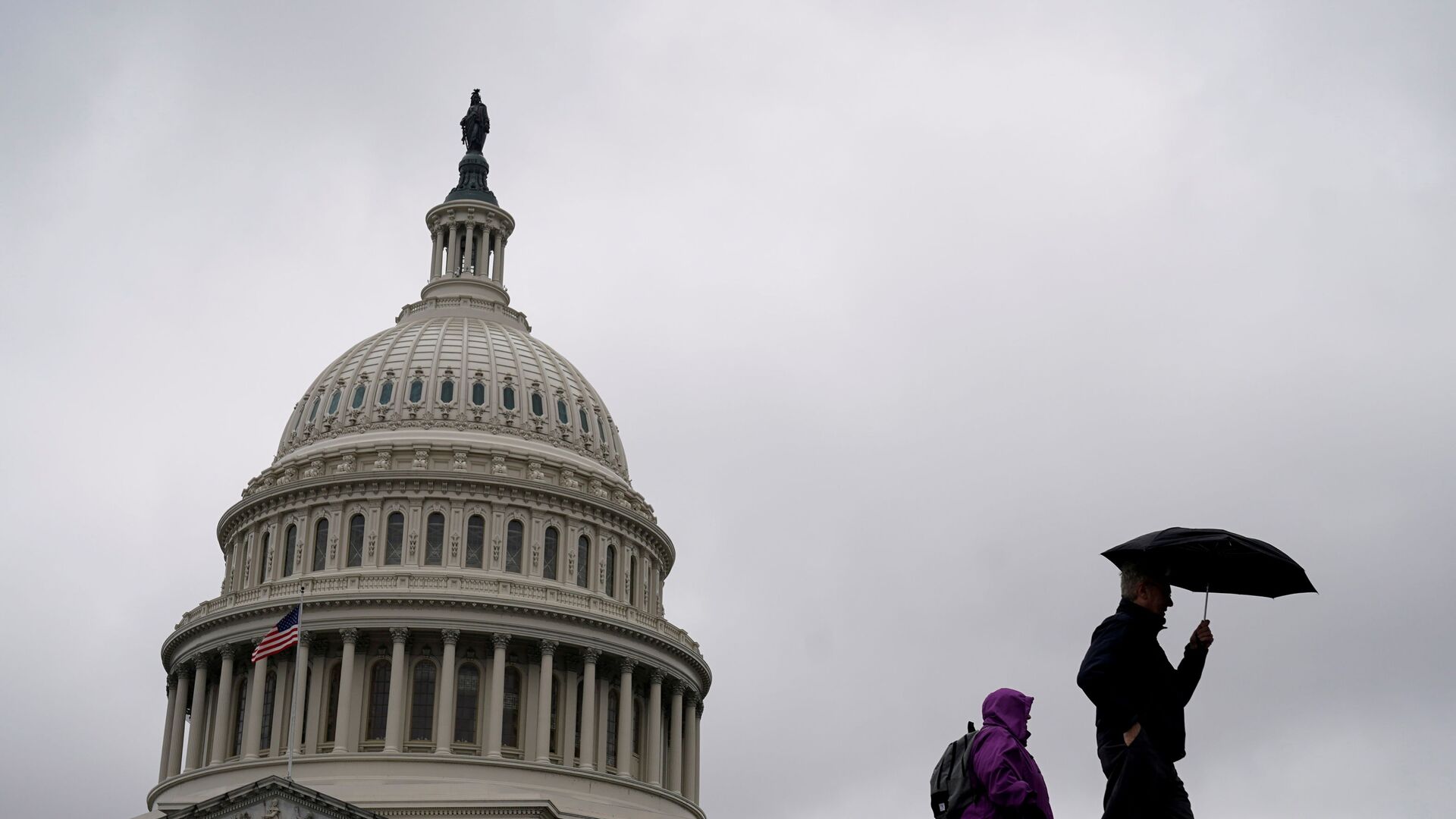https://sputnikglobe.com/20220301/womens-health-protection-act-which-would-codify-abortion-rights-in-us-law-voted-down-by-senate-1093465675.html
Women’s Health Protection Act, Which Would Codify Abortion Rights in US Law, Voted Down by Senate
Women’s Health Protection Act, Which Would Codify Abortion Rights in US Law, Voted Down by Senate
Sputnik International
A bill that would have made the right to an abortion part of US law, instead of being dependent on a US Supreme Court ruling, has failed to pass the US Senate... 01.03.2022, Sputnik International
2022-03-01T00:43+0000
2022-03-01T00:43+0000
2022-08-06T13:28+0000
abortion
us senate
roe v. wade
us supreme court
us
https://cdn1.img.sputnikglobe.com/img/07e5/06/16/1083204825_0:0:3141:1768_1920x0_80_0_0_ebd4a87ecd0547549e0092beb26aa6b0.jpg
The Senate voted 46-48 on Monday on a motion to bring the Women’s Health Protection Act to a vote in the Senate, meaning the bill has died.The bill passed the Democratic-majority House in late September, several weeks after the US Supreme Court decided not to stop the implementation of a Texas law that bans abortions at roughly five weeks after conception, when most women do not even know they are pregnant. However, in the evenly-split Senate, where Vice President Kamala Harris casts a tie-breaking vote and where Republicans can use the filibuster rule to stop objectionable bills from even getting to be voted on, the WHPA stalled for months.In November and December, the US Supreme Court heard several cases concerning the Texas abortion law, known as SB 8, as well as another very restrictive anti-abortion law in Mississippi, but has declined to move against them thus far. In one case, Dobbs v. Jackson Women’s Health Organization, the state of Mississippi asked the court to not just consider its ruling in the 1992 case Planned Parenthood v. Casey, but also its 1973 ruling in Roe v. Wade. The latter case saw the court deem abortion a legal practice, protecting access to the procedure under a woman’s right to privacy, but also laying out a structure in which abortion could be regulated.The Roe decision provoked a strong backlash among religious conservatives, whose anti-abortion program has become one of the bellwethers of Republican Party politics. With a 6-3 conserative majority, Democrats now fear that the high court is both capable and willing to reverse its decision in Roe.
Sputnik International
feedback@sputniknews.com
+74956456601
MIA „Rossiya Segodnya“
2022
Sputnik International
feedback@sputniknews.com
+74956456601
MIA „Rossiya Segodnya“
News
en_EN
Sputnik International
feedback@sputniknews.com
+74956456601
MIA „Rossiya Segodnya“
Sputnik International
feedback@sputniknews.com
+74956456601
MIA „Rossiya Segodnya“
abortion, us senate, roe v. wade, us supreme court, us
abortion, us senate, roe v. wade, us supreme court, us
Women’s Health Protection Act, Which Would Codify Abortion Rights in US Law, Voted Down by Senate
00:43 GMT 01.03.2022 (Updated: 13:28 GMT 06.08.2022) A bill that would have made the right to an abortion part of US law, instead of being dependent on a US Supreme Court ruling, has failed to pass the US Senate. Democrats have rushed to pass the bill as the high court seems poised to hinder or strike down legal abortion access nationwide.
The Senate voted 46-48 on Monday on a motion to bring the
Women’s Health Protection Act to a vote in the Senate, meaning the bill has died.
The bill passed the Democratic-majority House
in late September, several weeks after the US Supreme Court decided not to stop the implementation of a Texas law that bans abortions at roughly five weeks after conception, when most women do not even know they are pregnant. However, in the evenly-split Senate, where Vice President Kamala Harris casts a tie-breaking vote and where Republicans can use the filibuster rule to stop objectionable bills from even getting to be voted on, the WHPA stalled for months.
The Senate has been the graveyard of many key parts of US President Joe Biden’s agenda since he took office in January 2021, including the
Build Back Better Act, the
Equality Act, and the John Lewis
Voting Rights Act. The stonewalling has led some liberals to call for revising the filibuster rule, but Biden has never supported the effort.
In November and December, the US
Supreme Court heard several cases concerning the Texas abortion law, known as SB 8, as well as another very restrictive anti-abortion law in Mississippi, but has declined to move against them thus far. In one case, Dobbs v. Jackson Women’s Health Organization, the state of
Mississippi asked the court to not just consider its ruling in the 1992 case Planned Parenthood v. Casey, but also its 1973 ruling in Roe v. Wade. The latter case saw the court deem abortion a legal practice, protecting access to the procedure under a woman’s right to privacy, but also laying out a structure in which abortion could be regulated.
The Roe decision provoked a strong backlash among religious conservatives, whose anti-abortion program has become one of the bellwethers of Republican Party politics. With a 6-3 conserative majority, Democrats now fear that the high court is both capable and willing to reverse its decision in Roe.

